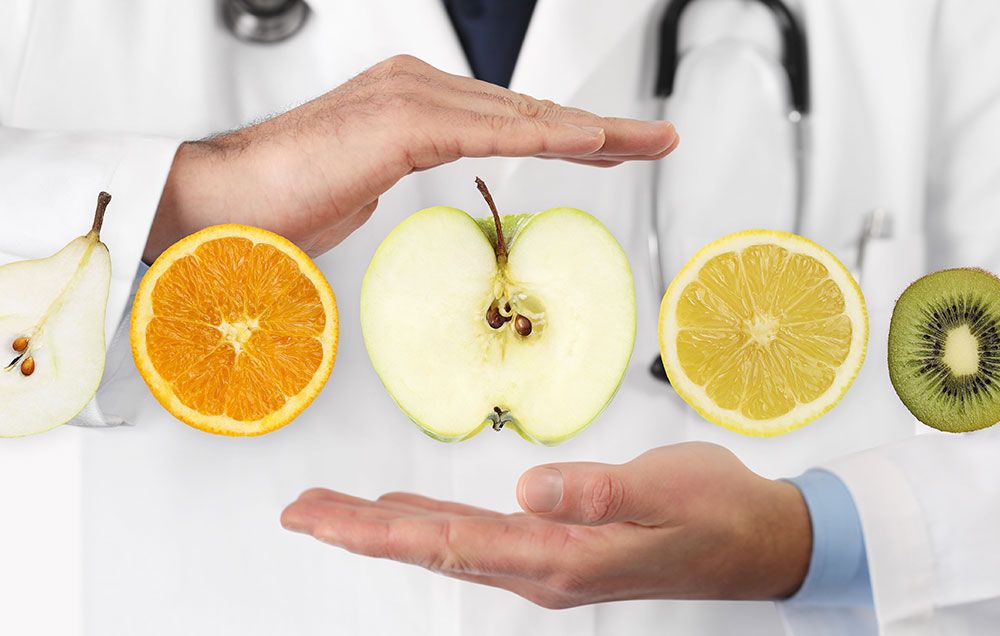All Categories
Featured
Table of Contents
-1
Or they might just have a passing interest in the field. It's something like the distinction in between your close friend that owns a collection of clippers and a licensed barber. Certain, you can obtain a hairstyle in any case. You can be a lot more certain in the abilities the barber brings to the table."Anybody can call themselves a nutritionist.
-1"Being a dietitian indicates you've finished the demands established by the Academy of Nourishment and Dietetics to provide nutrition counseling and clinical nutrition therapy."You'll find dietitians in a selection of job settings, consisting of: Healthcare facilities and medical professionals' workplaces. Retirement home. Area wellness and health organizations (like gyms and recreation facilities). Foodservice companies. Food and beverage business.

-1
In addition to making RD and LD credentials, some signed up dietitians might finish specific training to be able to better counsel people with certain nutrition goals or health and wellness conditions. Some dietitians may earn certifications in specializeds like: Sports dietetics (CSSD). Some certification programs might be open to individuals that aren't signed up dietitians.
-1"If you desire to be certain you're getting the ideal evidence-based recommendations from a specialist in the field, a dietitian is always going to be your ideal wager," Sommer encourages. That's not to claim some individuals who haven't finished the specialized training it needs to be a dietitian don't have anything to provide.
Dietitian – Wanneroo 6065
-1"Your health and wellness is essential, so you do not desire to put it in the hands of simply any person.".
-1The answer exists is a difference. As an Accredited Practising Dietitian and Accredited Nutritionist, I believe it is exceptionally vital to find an expert ideal suited to your individual needs; and it is important to make an informed choice. In Australia there is no lawful protection over the terms 'dietitian' and 'nutritional expert.' This indicates that any individual (with a range of education and training) can describe themselves as a dietitian or a nutritional expert.
-1In contrast, the term nutritional expert is not as controlled as APD. Nourishment Society of Australia has established a Register of Nutritionists but subscription is entirely voluntary. This implies it is up to the practitioner if they desire to become a member or not. While many nutritional experts go through university training, it is not to the extent of dietitians.
-1Nutritionists are not educated in clinical nutrition treatment and can not suggest diets in illness states. This includes both in individual or team dietary interventions. Nutritional experts are just able to give recommendations for general health problems such as weight management, nutrition across the life cycle, or nourishment in numerous dietary selections (such as veganism and vegetarianism).
Best Dietician (Ashby )
-1It is essential to aim out that, as a result of enhanced education, all APDs are automatically Recognized Nutritionists and have the ability to offer all of the solutions a nutritionist can offer. The goal of both nutritionists and dietitians is to aid individuals attain optimal health and wellness and wellness with enhancing nutrition. The primary distinction in between a dietitian (only those with the APD title) and a nutritional expert is that APDs have actually gone on to refresher course and are qualified to offer medical nutrition therapy to individuals and to groups.
-1APDs performance is likewise constantly checked and they are required to complete consistent education and learning. APDs are bound by a Code of Ethics, and those that do not abide (as well as those that do not complete the required continuous expert development) shed their APD title. APDs are additionally signed up with Medicare, DVA and most health funds; whereas, nutritionists are not.

-1
Although both are healthcare experts, the titles 'Dietitian' and 'Nutritionist' are commonly incorrectly interchanged. The main distinction is the training and licensing that puts on each title. The title of a Registered Dietitian (RD) is secured by law, and specialists must be signed up with the Health and wellness & Care Professions Council (HCPC). To end up being a Registered Dietitian, you require to complete a certified bachelor's degree and afterwards a Master's in Dietetics or a Doctorate.
Sports Nutritionist – Wanneroo 6065
-1The title of Registered Nutritional expert is provided to registrants with the UK Voluntary Register of Nutritionists (UKVRN). By completing an advanced degree such as a master's in nutrition and/or doctorate program, Registered Nutritionists can continue to come to be researchers and educators in the area of nourishment.
-1
Externally, "dietitian" and "nutritionist" are basic synonyms. They both aid individuals establish wholesome, sustainable eating habits and end up being general healthier people. The main difference in between dietitians and nutritionists lies in the lawful limitations that each title carries. Dietitians, likewise described as registered dietitians (RD) or registered dietitian nutritional experts (RDN), can deal with clinical medical issues. paediatric dietician.
-1Usually, insurance policy carriers will cover expenses linked with a dietitian's solutions. While they usually function in institutions, health clubs, wellness food stores, and other less medically-oriented atmospheres, they can additionally function in numerous of the very same areas as their RD coworkers.
-1Some states require nutritionists to hold a job-related certificate, yet others don't regulate the role whatsoever. For individuals and clients, though, this means that their insurance providers don't often cover solutions from a nutritional expert. If you're checking out which path is appropriate for you, below's what you require to find out about the differences in coming to be a nutritionist versus a dietitian.
Latest Posts
Gut Health Nutritionist
What Is The Best Calisthenics Transformation Company?
Which Is The Best Private Dietitian Cost Service?